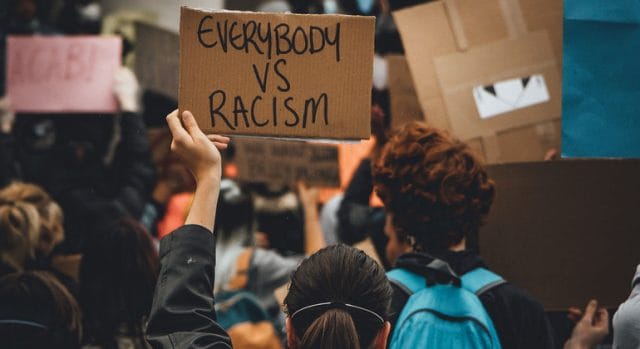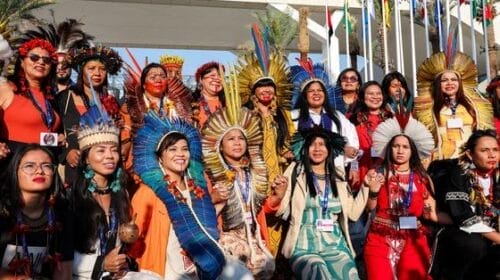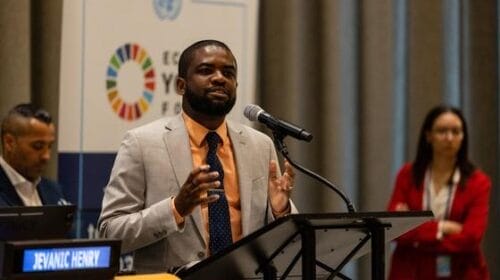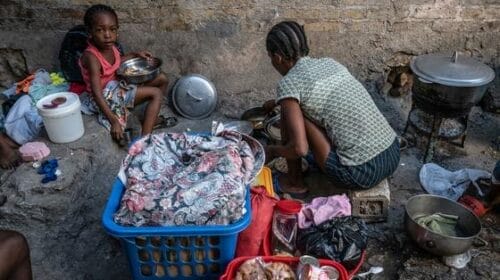20 years after Durban Declaration, racism reverberates in ‘echo chambers of hate’


Marking the 20th anniversary of the Durban Declaration and Programme of Action (DDPA), Heads of States and Governments gathered in the General Assembly hall as part of UNGA76, to discuss reparations, racial justice and equality for people of African descent.
“People of African descent, minority communities, indigenous peoples, migrants, refugees, displaced persons, and so many others – all continue to confront hatred, stigmatization, scapegoating, discrimination, and violence”, spelled out Secretary-General António Guterres.
“Xenophobia, misogyny, hateful conspiracies, white supremacy and Neo-Nazi ideologies are spreading – amplified in echo chambers of hate”, he added.
Unmistakable links
From glaring infringements to creeping transgressions, human rights are under assault, said the UN chief.
Structural racism and systematic injustice still deny people their fundamental human rights, and linkages between racism and gender inequality are unmistakable.
Some of the worst impacts in the “overlaps and intersections of discrimination” are suffered by women. And the world is witnessing “a troubling rise” in antisemitism, growing anti-Muslim bigotry and the mistreatment of minority Christians, he pointed out.
The Secretary-General urged everyone to condemn discrimination, hateful speech, and baseless assertions, as those pushing that ideology today, denigrate “our essential fight against racism”.
New awakening
Mr. Guterres highlighted a “transformative agenda” launched by the Office of the High Commissioner for Human Rights (OHCHR) to try and dismantle systemic racism, ensure accountability and deliver reparatory justice.
“This new awakening, often led by women and young people, has created momentum we must seize upon”, he said, also recognizing the “meaningful progress” made by the Permanent Forum of People of African Descent in confronting systemic racism.
The UN chief called on Member States to “take concrete actions” to support these efforts on national and global levels to and to “recognize the contemporary resonance of past crimes that continue to haunt our present”, such as transgenerational suffering and structural inequalities “deeply rooted in centuries of enslavement and colonial exploitation”.
“We must reverse the consequences of generations of exclusion and discrimination – including their obvious social and economic dimensions through reparatory justice frameworks”.
Unite in ‘common humanity’
The UN chief urged everyone to “recognize diversity as richness” and understand that fighting racism is a universal and “concrete struggle in every society”.
“No country can claim to be free from it”, he said, underscoring the need to redress political, economic and structural imbalances; ensure that everyone feels respected as a valued member of society; and “stand together as one human family, rich in diversity, equal in dignity and rights, united in solidarity”.
At a time when the world feels more divided than ever, the Secretary-General encouraged everyone to “unite around our common humanity…and re-commit ourselves to this essential purpose”.
Tackle racism
General Assembly President, Abdulla Shahid, upheld that the world has not done enough to “tackle the pervasiveness” of racial discrimination, intolerance and xenophobia.
“Racism begets violence, displacement, and inequity. It lives on because we allow it to. It penetrates society because we fail to acknowledge diversity”, he said.




